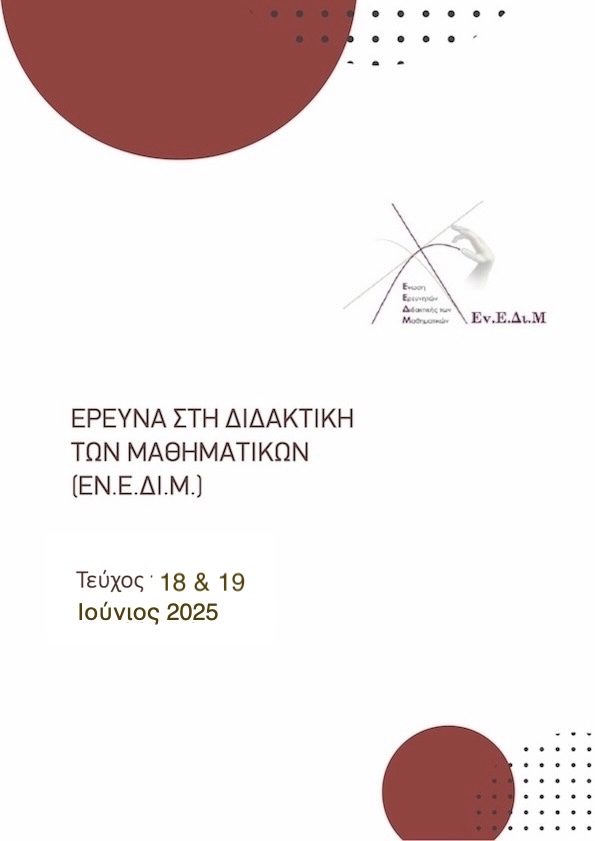ΑΝΑΠΤΥΣΣΟΝΤΑΣ ΜΑΘΗΜΑΤΙΚΟ ΓΡΑΜΜΑΤΙΣΜΟ ΜΕ ΝΕΑΡΟΥΣ ΚΡΑΤΟΥΜΕΝΟΥΣ
Resumen
Η έρευνα έχει αναδείξει τη σημασία της εκπαίδευσης στη φυλακή και ειδικά της μαθηματικής εκπαίδευσης, δεδομένου του ρόλου των μαθηματικών στην τεχνολογικά προσανατολισμένη εποχή μας. Στο ελληνικό πλαίσιο είναι περιορισμένη ως ανύπαρκτη η έρευνα για τη μαθηματική εκπαίδευση νεαρών κρατουμένων. Σκοπός αυτής της ερευνητικής εργασίας είναι η εύρεση βέλτιστης πρακτικής στη διδασκαλία των μαθηματικών—και παράλληλα η επαγγελματική ανάπτυξη του εκπαιδευτικού— και στόχος η ανάπτυξη μαθηματικού γραμματισμού, μέσω διαλογικών διαδικασιών, ώστε να ενισχυθεί η ενεργός συμμετοχή των νεαρών κρατουμένων μέσα σε ένα πλαίσιο, όπου αμβλύνονται ο πειθαρχικός λόγος (disciplinary discource) και οι σχέσεις εξουσίας. Αξιοποιώντας την κριτική συμμετοχική «έρευνα-δράση» φάνηκε να βελτιώνεται η συμμετοχή και η επίδοση στα μαθηματικά των νεαρών κρατουμένων, καθώς και η διδακτική πρακτική του εκπαιδευτικού-ερευνητή.
Article Details
- Cómo citar
-
Φόβος Ι. (2025). ΑΝΑΠΤΥΣΣΟΝΤΑΣ ΜΑΘΗΜΑΤΙΚΟ ΓΡΑΜΜΑΤΙΣΜΟ ΜΕ ΝΕΑΡΟΥΣ ΚΡΑΤΟΥΜΕΝΟΥΣ. Έρευνα στη Διδακτική των Μαθηματικών, (18 & 19), 69–91. Recuperado a partir de https://ejournals.epublishing.ekt.gr/index.php/enedim/article/view/37277
- Sección
- Άρθρα

Esta obra está bajo una licencia internacional Creative Commons Atribución 4.0.
Οι συγγραφείς των άρθρων που δημοσιεύονται στο περιοδικό διατηρούν τα δικαιώματα πνευματικής ιδιοκτησίας επί των άρθρων τους, δίνοντας στο περιοδικό το δικαίωμα της πρώτης δημοσίευσης. Άρθρα που δημοσιεύονται στο περιοδικό διατίθενται με άδεια Creative Commons BY και σύμφωνα με την άδεια μπορούν να χρησιμοποιούνται ελεύθερα, με αναφορά στο/στη συγγραφέα και στην πρώτη δημοσίευση.


